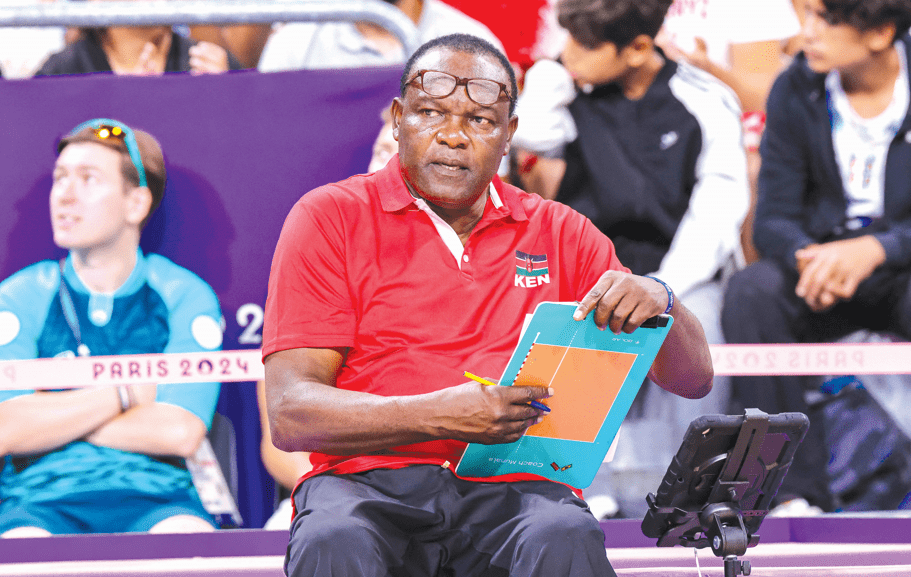Teetotaller emerges academic star in changaa-ravaged village

Ernest Musonye has become the epitome of a teetotaller in his Shiswa village home, nestled at the edge of the Kakamega rainforest in Murhanda location, Kakamega East Sub-county where chang’aa brewing and consumption has for long remained the mainstay.
In his quiet retirement, Musonye looks back at his poor background, compares to his current life of opulence and smiles in pride.
“I’m a living example of education’s transformative power and why parents should strictly forbid their children from imbibing cheap illicit brews,” he says.
“As an untrained teacher, I raised three children who now hold doctorate degrees—thanks to government support at the undergraduate level. My meagre payslip and strictness made that possible ,” he proudly says .
His backstory, however, is one of struggle. With both parents absent, Musonye was forced to move from one squatter house to another, relying on the kindness of friends and relatives to continue his education.
For all his toil, he managed only a fourth division in the East African Certificate of Education (EACE) exams—short of his dream, but just enough to earn him a government job as an untrained teacher.
He arrived in Shiswa in 1974 after completing school in Eldoret, only to encounter unexpected hostility to education.
“Chang’aa had a fixed abode here,” he recals. “There was little interest in schooling. If it weren’t for a government teacher recruitment exercise in 1975, I wouldn’t have made it.”
In 1980, Musony married Rose, and their union blesssed six children Winnie, Sheila, Fenwicks, Xavier, Harry, Olympia, and departed Cyril. But with each new child came fresh challenges. His modest income could barely sustain the family.
“My salary was just Sh400 when I started. It rose to Sh7,000 by my retirement in 2004,” he said. “It was never enough—for food, clothing, or school fees. I became the laughingstock in one school where I taught, wearing the same red shirt and unpolished shoes every day.”
To keep the children in school, Musonye took loans that whittled his payslip down to less than Sh200.
“I sold cows, trees, and even parts of my land to make ends meet. We often survived on one meal—or none,” he says.
Rose, who sat beside him during the interview, nodded in agreement. She recounted how she resorted to brewing chang’aa to support the family, but later stopped due to rowdy customers and her husband’s counsel that their children could easily become addicted to the drink. Yet, she never compromised on parenting.
“I stayed home with the children whenever Mwalimu was posted far away. I tracked their academic progress, disciplined them, taught them hard work. They had to tend the farm before and after school,” Rose says.
She remembered how young Xavier, barely eight years old, would sometimes cry from fatigue and hunger while working in the fields.
“The hoe was like an ox-plough to him,” she said.
As the interview progressed, I looked around, trying to connect the spoken misery with the present reality. It was invisible.
“Where is the suffering you speak of, Mzee Musonye?” I asked.
He burst into laughter.
“Yes, you’re right—it’s no longer visible. Education has erased the past. The children built this stone house for us in 2018 so we could finally breathe easy. Before that, I lived in a tin-roofed mud-walled house, after graduating from a grass-thatched hut. I don’t even know the prices of some basic items in this home anymore.”
Indeed, for Musonye, solutions to any of his problems are now just a phone call away. How else do you describe a household with three PhD holders, one more on the way, a master’s degree holder, and a Catholic nun providing spiritual nourishment?
Fenwicks, Xavier, and Harry—all earned their PhDs before turning 40.
Fenwicks Musonye holds a PhD in Mechanical Engineering from JKUAT, specializing in optimization of industrial process heat recovery.
Xavier Musonye, the fourth-born, is an Assistant Manager at Olkaria Geothermal and earned a PhD in Energy Systems Optimization from Reykjavik University in Iceland.
Harry Musonye completed a PhD in Epidemiology and Health Statistics from Anhui Medical University in China, where he was retained as a Postdoctoral Research Fellow.
Their sister Olympia is currently pursuing a PhD in Project Management for road infrastructure at JKUAT. Winnie, the eldest, is a nun, while Sheila is a graduate teacher.
From grass-thatched huts to a family of scholars, Ernest Musonye’s life is a testament to the power of education and perseverance against the odds.














